Revolutionaries Need to Eat, Too: Inside the Occupy Wall Street Kitchen (PHOTOS)
Whatever one's opinion of the Occupy Wall Street (OWS) protesters happens to be, one thing is certain: they are eating well. On any given day, large amounts of food are donated to the protesters from sympathizers around the country. From pizza and paninis to tacos and hummus sandwiches, the anti-corporate, big bank-hating protesters are getting by on a menu that would make any nearby office worker jealous.
Not only is the OWC menu appetizing, but the organization of the food system at their base in Zuccotti Park (formerly Liberty Plaza Park) shows that the Wall Street protesters are not just slackers with signs.
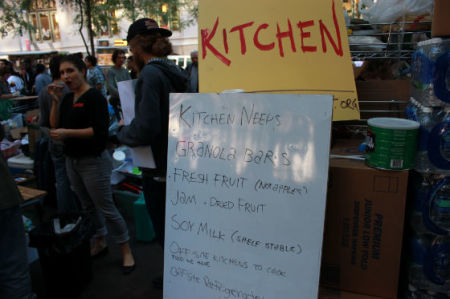
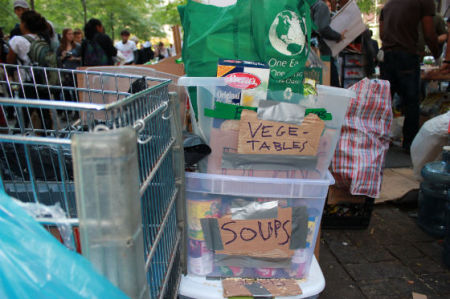
Occupy Wall Street runs on volunteers and donations. Hot, prepared food as well as canned and packaged goods are donated by supporters, either by mail or in person, and then served by volunteers.
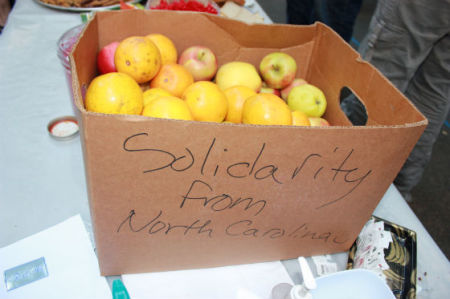
Food is donated from all over the country. Supporters from as far as California have phoned in orders from nearby restaurants and, as shown above, supporters in North Carolina have brought apples and oranges.
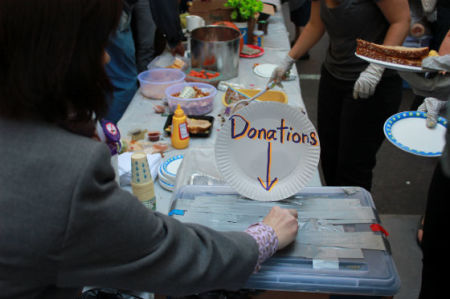
Many people contribute cash for the protesters to buy the food and kitchen supplies they need.
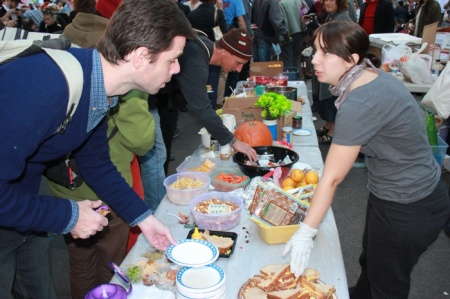
At the buffet line, just grab a plate and pick what you like, even if you are not a protester. "We'll feed anybody that comes by. Everyone deserves food," said kitchen volunteer Kristie Brigandi, 22 (right).
On the menu were: egg sandwiches, hummus sandwiches, pretzels, carrot sticks, fresh fruit, and salad. There was also a pizza delivery nearby with several people munching on cheese and pepperoni slices.
According to Brigandi, the Occupy Wall Street kitchen serves hundreds of people, including homeless individuals, each day. On Oct. 5, the day of a mass march down Broadway, the kitchen served as many as 1,500.
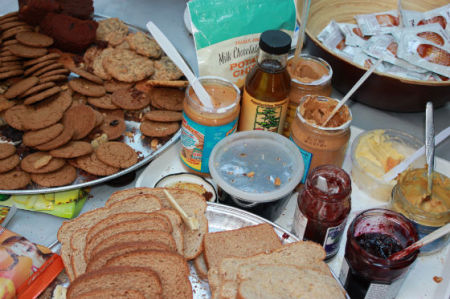
When prepared food is not being served, peanut butter and jelly sandwiches, cookies, granola bars, and fruit are always available.
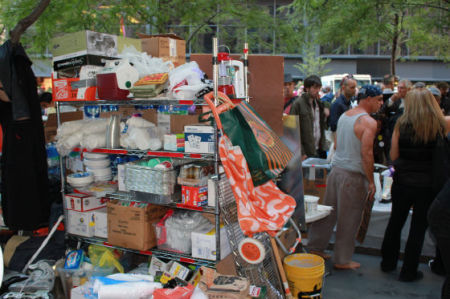
The kitchen is fully equipped with reusable containers and eating utensils, as well as cleaning products.
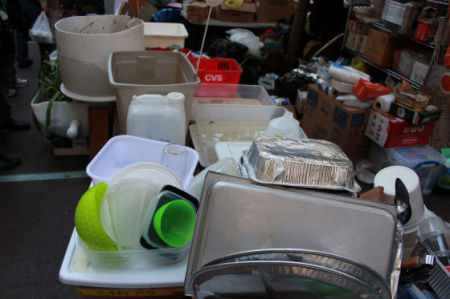
There is no running water available to the protesters, but dishes are washed in a small plastic tub with soap and bottled water. Kitchen duties are equally divided among volunteers.
"We do a rotation and take turns doing whatever needs to be done," said volunteer Siullis Garcia, 22.
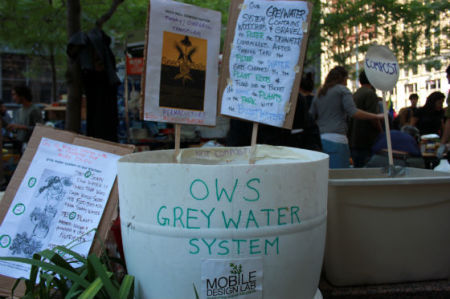
Waste is kept to a minimum, with dirty dish water being put through a handmade filter that purifies the water enough to be used for plants that decorate the outside of the kitchen. Also, food waste is made into compost that is used on the plants.
(Photos: The Christian Post/Ray Downs)





















